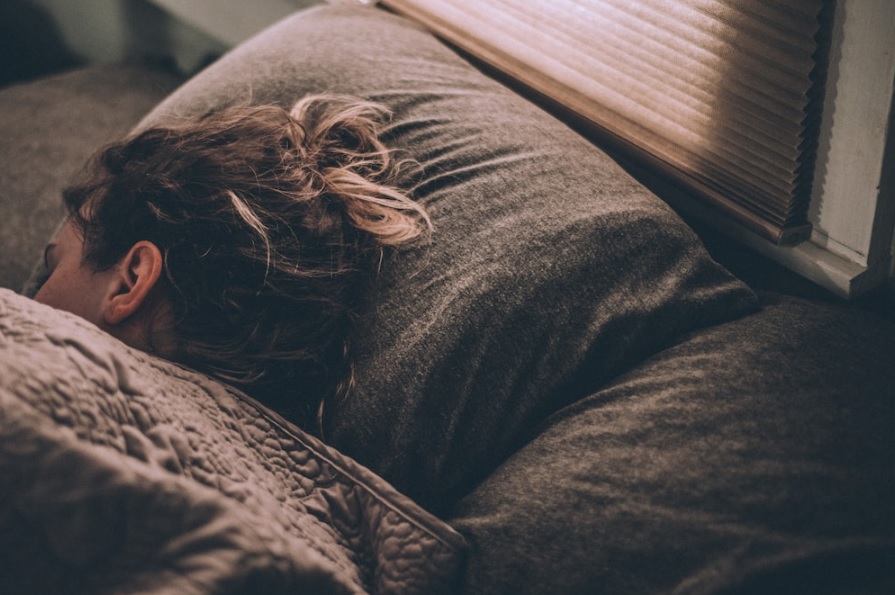Establishing a serene bedtime routine is a game-changer for enhancing your sleep quality and overall well-being.
The importance of a nightly ritual cannot be understated as it sets the tone for a fruitful, restful slumber.
This guide offers practical tips to help you create a calming bedtime routine, designed to lull you into a deep and refreshing sleep.
From setting a consistent sleep schedule to incorporating calming activities, you’ll find strategies that can be tailored to suit your lifestyle and preferences.
So let’s dive into everything to know about getting a better night of sleep one night at a time!
Table of Contents
Benefits Of A Good Night Sleep
- Improves Memory: Sleep plays a crucial role in consolidating memories. During sleep, your brain works to store new information that you’ve learned during the day, aiding in memory retention.
- Aids in Physical Health: Adequate sleep is essential for the repair and healing of your heart and blood vessels. It also contributes to a healthy balance of hormones that regulate hunger, thus helping in maintaining a healthy weight.
- Boosts Immune System: While you sleep, your body produces proteins known as cytokines which help combat infection and inflammation in the body.
- Enhances Mental Health: Good sleep can help manage levels of stress and anxiety. It’s linked with better emotional regulation, thus contributing to improved mood and overall mental health.
- Improves Productivity and Concentration: A good night’s sleep enables improved concentration, productivity, and cognitive function, helping you perform at your best during the day.
For more information on the benefits of quality sleep, visit here.
1. Create A Relaxing Environment
Your bedroom should be your sanctuary, and the environment should reflect that. Turn down lighting around the house and keep electronics out of the bedroom.
You may want to switch to yellow light bulbs as they provide a warmer hue than white or blue lights, helping you wind down and relax more easily.
Use cozy blankets and inviting pillows to create an inviting atmosphere. If possible, add some indoor plants that promote relaxation, such as lavender or jasmine.
2. Establish A Consistent Sleep Schedule
A consistent bedtime routine is key for developing healthy sleep habits. To start, decide on a time you want to go to sleep and the time you want to wake up each day.
Aim to stick with this schedule even during weekends and holidays. Give yourself at least an hour before bedtime to begin shutting down for the day.
This will help your body understand when it’s time to rest and better prepare you for sleep.
3. Incorporate Calming Activities
Find activities that can help you relax and unwind in the evenings, such as taking a warm bath or shower, reading a book, listening to calming music, or meditating.
These activities can help you transition into a relaxed state and signal to your body that it’s time for sleep.
Avoid exercising close to bedtime as this may make it more difficult to settle down afterwards.
And of course, make sure to shut off the screens so you can get your body acclimated to the bed time routine as our bodies naturally associate darkness with sleep.
If you’re struggling to calm yourself down, consider incorporating cannabis. In the event you feel the effect too much, consider using a tool like HIBEGONE to minimize the high.
4. Allow Yourself Enough Time To Sleep
It is important to give yourself enough time to sleep each night in order to function at your best.
The amount of sleep needed will vary from person to person, but most adults should aim for 7 to 9 hours of sleep each night.
If you’re having trouble falling asleep or staying asleep, talk to your doctor as this could be a sign of an underlying condition that needs medical attention.
5. Incorporate Self Care Rituals Into Your Evening Routine
When it comes to creating a calming bedtime routine, don’t forget to prioritize self care.
This could include enjoying a cup of herbal tea, writing in a journal, or giving yourself a massage with essential oils.
Taking some time to focus on your wellbeing will help you physically and mentally relax before going to bed.
With the right self-care rituals, you can slowly drift off into a peaceful slumber so you wake up refreshed and ready for the day.
Conclusion
Developing a healthy bedtime routine is essential for getting a good night’s rest.
By making simple adjustments to your lifestyle, you can create an environment that promotes relaxation and better sleep quality.
From setting a consistent sleep schedule to incorporating calming activities and self-care rituals into your evening routine, you can make small changes that will have big impacts on your wellbeing.
Make sure to make sleep a priority – you won’t regret it!



